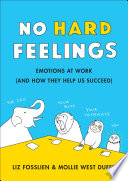

The authors emphasize the importance of emotional awareness in the workplace. Recognizing and understanding one's own emotions and those of others can lead to better communication, collaboration, and overall workplace dynamics. Emotional awareness allows employees to navigate complex social situations, resolve conflicts more effectively, and foster a more inclusive environment. By being attuned to emotions, individuals can create stronger relationships and enhance team performance.
Continue readingVulnerability is often perceived as a weakness, but the authors argue that it can actually be a strength in professional settings. When leaders and team members show vulnerability, it encourages openness and trust within the team. This can lead to more honest conversations, increased creativity, and a culture where employees feel safe to share their ideas and concerns. Embracing vulnerability helps to break down barriers and fosters a sense of belonging among team members.
Continue readingConflict is an inevitable part of any workplace, but the authors suggest that it can be a catalyst for growth and innovation if managed properly. Instead of avoiding conflict, leaders should encourage healthy debates and discussions that can lead to better decision-making. By creating an environment where differing opinions are valued, teams can explore diverse perspectives and arrive at more robust solutions. This approach not only enhances team cohesion but also drives organizational success.
Continue readingPositive emotions play a crucial role in enhancing workplace morale and productivity. The authors highlight how fostering a positive emotional climate can lead to improved employee engagement, creativity, and collaboration. Simple practices, such as expressing gratitude, celebrating successes, and promoting a sense of humor, can significantly impact the overall atmosphere of the workplace. By prioritizing positivity, organizations can create an environment where employees thrive and contribute their best work.
Continue readingEmotional Intelligence (EQ) is a critical skill for success in the workplace. The authors provide insights on how individuals can develop their EQ through self-reflection, empathy, and active listening. By honing these skills, employees can improve their interpersonal relationships and navigate workplace dynamics more effectively. Organizations can also benefit from investing in EQ training for their teams, leading to a more emotionally intelligent workforce that can adapt to challenges and changes.
Continue readingFeedback is essential for personal and professional growth, yet many workplaces struggle with it. The authors advocate for creating a culture of feedback where employees feel comfortable giving and receiving constructive criticism. This involves training leaders to provide feedback in a way that is supportive rather than punitive. By normalizing feedback conversations, organizations can foster continuous improvement and help employees develop their skills and careers.
Continue readingHumor can be a powerful tool in the workplace, serving as a means to relieve stress, build camaraderie, and enhance creativity. The authors discuss how incorporating humor into daily interactions can make the workplace more enjoyable and foster stronger relationships among colleagues. By encouraging a light-hearted atmosphere, organizations can create an environment where employees feel more connected and motivated to collaborate.
Continue readingThe reading time for No Hard Feelings depends on the reader's pace. However, this concise book summary covers the 7 key ideas from No Hard Feelings, allowing you to quickly understand the main concepts, insights, and practical applications in around 22 min.
No Hard Feelings is definitely worth reading. The book covers essential topics including Emotional Awareness in the Workplace, The Value of Vulnerability, Embracing Conflict as a Path to Growth, providing practical insights and actionable advice. Whether you read the full book or our concise summary, No Hard Feelings delivers valuable knowledge that can help you improve your understanding and apply these concepts in your personal or professional life.
No Hard Feelings was written by Liz Fosslien, Mollie West Duffy.
If you enjoyed No Hard Feelings by Liz Fosslien, Mollie West Duffy and want to explore similar topics or deepen your understanding, we highly recommend these related book summaries:
These books cover related themes, complementary concepts, and will help you build upon the knowledge gained from No Hard Feelings. Each of these summaries provides concise insights that can further enhance your understanding and practical application of the ideas presented in No Hard Feelings.